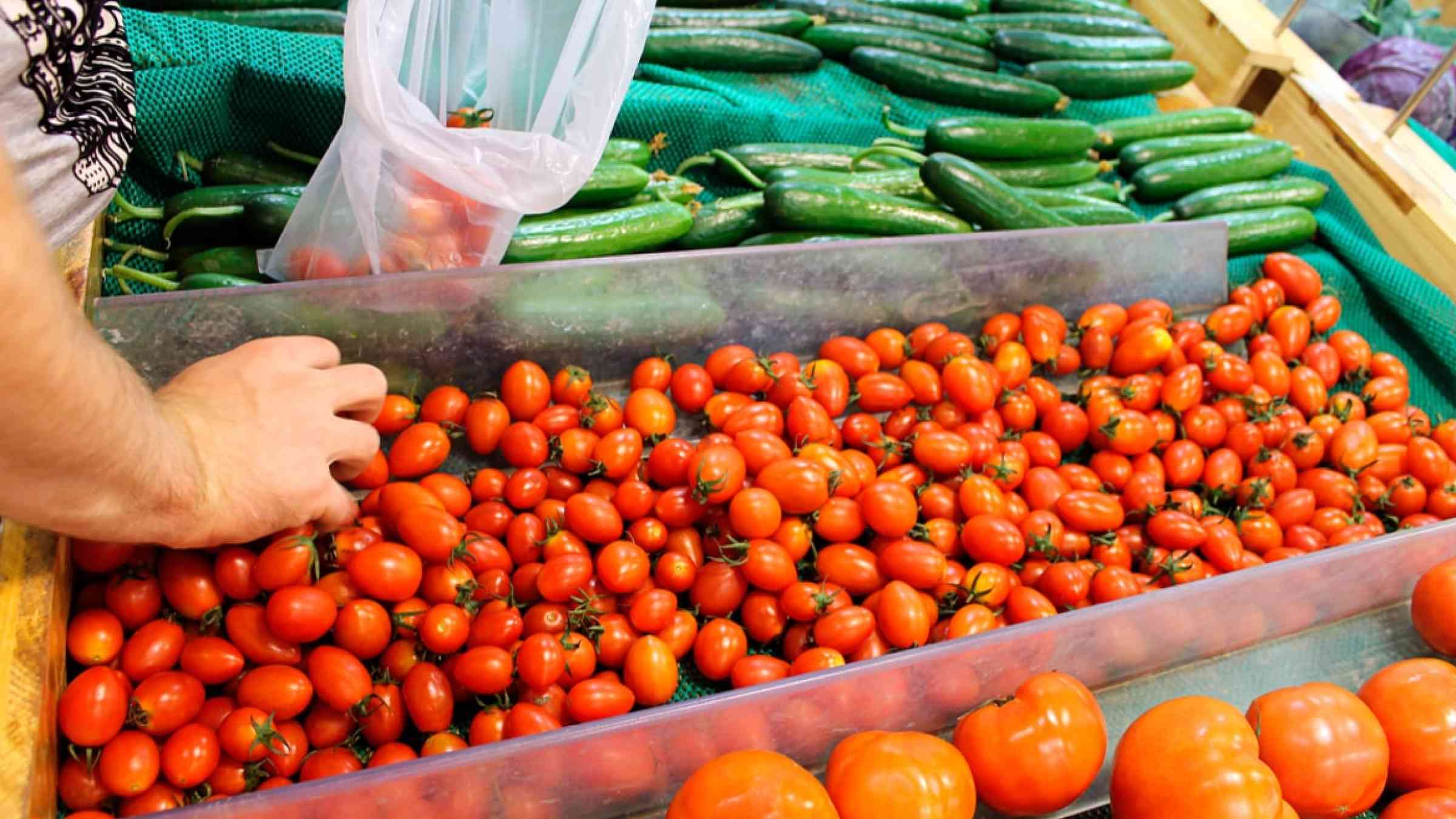Extreme heat drives up food prices. Just how bad will it get?

New research shows that climate change is already fueling heatflation, with worse to come.
Sometimes climate change appears where you least expect it — like the grocery store. Food prices have climbed 25 percent over the past four years, and Americans have been shocked by the growing cost of staples like beef, sugar, and citrus.
While many factors, like supply chain disruptions and labor shortages, have contributed to this increase, extreme heat is already raising food prices, and it’s bound to get worse, according to a recent study published in the journal Communications Earth & Environment. The analysis found that heatflation could drive up food prices around the world by as much as 3 percentage points per year in just over a decade and by about 2 percentage points in North America. For overall inflation, extreme weather could lead to anywhere from a 0.3 to 1.2 percentage point increase each year depending on how many carbon emissions countries pump into the atmosphere.
Though that might sound small, it’s actually “massive,” according to Gernot Wagner, a climate economist at Columbia Business School. “That’s half of the Fed’s overall goal for inflation,” he said, referencing the Federal Reserve’s long-term aim of limiting it to 2 percent. The Labor Department recently reported that consumer prices climbed 3.2 percent over the past 12 months.
The link between heat and rising food prices is intuitive — if wheat starts withering and dying, you can bet flour is going to get more expensive. When Europe broiled in heat waves in 2022, it pushed up food prices that were already soaring due to Russia’s invasion of Ukraine (known as the breadbasket of Europe), researchers at the Europe Central Bank and Potsdam Institute in Germany found in the new study. Europe saw a record-breaking 9.2 percent inflation that year, and the summer heat alone, which hurt soy, sunflower, and maize harvests, might have been responsible for almost a full percentage point of that increase.
The study’s results were striking, Wagner said, but at the same time very believable. He thinks the calculations are probably on the conservative end of the spectrum: “I wouldn’t be surprised if follow-up studies actually came up with even higher numbers.”
It adds up to a troubling picture for the future affordability of food. “The coronavirus pandemic demonstrated how sensitive supply changes are to disruption and how that disruption can awaken inflation,” David A. Super, a professor of law and economics at Georgetown University Law Center, wrote in an email. “The disruptive effects of climate change are orders of magnitude greater than those of the pandemic and will cause economic dislocation on a far greater scale.”
The world began paying attention to the dynamic between climate change and higher prices, or “climateflation,” in March 2022, soon after Russia invaded Ukraine, when the German economist Isabel Schnabel coined the term in a speech warning that the world faced “a new age of energy inflation.” A few months later, Grist coined the term “heatflation” in an article about how blistering temperatures were driving up food prices.
The research lends some credibility to the title of the landmark climate change bill that President Joe Biden signed in 2022, the Inflation Reduction Act. While it’s an open joke that the name was a marketing term meant to capitalize on Americans’ concerns about rising prices, it might be more fitting, in the end, than people expected. “We shouldn’t be making fun of the name Inflation Reduction Act, because in the long run, it is exactly the right term to use,” Wagner said.